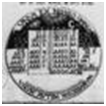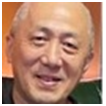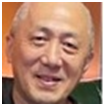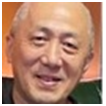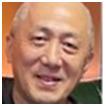无穷大是一个概念而不是一个数值
戴榕菁
前文“哲学无穷大与数学无穷大”【[1]】中提到在academia.edu的GM Jackson的一篇试图将康托关于无穷大的错误理论合理化的题为“Why Different Infinities Are Really Equal” 的文章的讨论中,我指出在哲学上无穷大是一个标志着大于任何一个数的概念,而在数学上无穷大则是基于哲学的无穷大概念的度量,而不同背景条件下的数学无穷大的度量意义是不同的,因此数学上的无穷是不会如Jackson他所要证明的那样相同的。
虽然基本上没有人提出什么异议,我可以感受到那里参加讨论的人并没能真正理解我上面提到的论述。。。。相应地,他们之间的争论继续着,争论的焦点变为无穷大到底是否为一个数值。从他们的讨论可以看出那里参加讨论的基本上都是搞数论和集合论的专业数学界人士,对相关的定理及理论都很熟悉,但在与之相关的哲学上的认识上却都相当欠缺。比如,由于康托的影响,使得该讨论文章的作者Jackson对于n/0以及无穷大的意义产生了混乱和困惑。下面是我针对无穷大是否为一个数值所表达的观点整理后的中译文(英文相关讨论原文在附录里):
(1)
从小我们都应该在学校里学到n/0 是不存在的, 也就是说. n/0 不是一个数。类似地,n/0 = ∞是不ok的, 而当x → 0 时lim n/x = ∞ or y 是ok的。这是因为∞大于任何一个数,因此它本身就不是一个数。相应地,对于数值进行的运算就不宜用于∞。也就是说:
n × ∞ = ∞ 不ok 而 lim n × u = ∞ 当 u → ∞ 时 ok。
n + ∞ = ∞ 不ok 而lim n + u = ∞当u → ∞ 时 ok。
n / ∞ = 0 不ok 而lim n / u = 0, m, 或 ∞ 当u → ∞时 ok。
∞ + ∞ = ∞不ok 而lim n + u = ∞ 当n → ∞ 和u → ∞时 ok。
∞ × ∞ = ∞不ok 而lim n × u = ∞ 当n → ∞ 和u → ∞时 ok。
∞ / ∞ = M 不ok 而lim n / u = 0, m, 或 ∞ 当n → ∞ 和u → ∞时 ok。
(2)
人们可以任意定义他们自己想要的形式系统。比如,他们可以定义∞+ ∞= ∞, ∞ × ∞ = ∞, ∞ - ∞ = M, n × ∞ = ∞, n + ∞ = ∞, 等等。但是,当他们这么做的时候,他们已经制造出了一个与具有“大于任意一个数”的哲学意义的∞相矛盾的特殊的∞。。。也就是说,他们制造了他们自己的一套游戏体系而已。
人们是否可以将这样的游戏体系做实际的应用呢?
在特定的条件下,只要不会引起逻辑上的冲突,人们也确实可以将他们自己随心所欲定义的形式系统应用在现实世界的实践中。。。。这就是好比每个人都可以有自己的速记的系统,但这并不意味着别人就能读懂你用速记写下的内容。至于你自己的速记是对是错也只有当你把你记的内容拿出来与现实对比时别人才知道。。。。如果你做速记只是为了自嗨,那么别人也完全没必要在乎你记录的是什么。
所以,当人们将他们自己所定义的关于∞的形式系统用于现实生活时,他们应该记住这一点:他们的系统与现实之间是有着裂缝的,在某些情形下,他们的脚有可能被卡在那些缝隙中的。
比如,人们常把tan(π/2) = 1/0 写成∞,但是实际上,tan(π/2)与tan(π/2-ε)在几何意义上有着本质的区别,因为在一个直角三角形内,当一个锐角增大到π/2时,那个三角形就不复存在了。所以tan(π/2) = ∞ 就相当于人们用来记录一个并不存在的内角的正切值的速记符号,一个用来表示当ε趋于0的时候,tan(π/2-ε) 之极限值的速记符号而已。
尽管上述内容非常地哲学但它们丝毫也不比数学来得不真实。
(3)
Jackson在回应我的上述论述时说【Real numbers require that there be an infinite number of numbers between, say, 0 and 1. It's tough to have a concept of real numbers without evoking infinity. 】
我对此回复说:当你说实数要求0和1之间有无穷多个数的时候,我猜在你的潜意识中那个无穷大就是“大于任何一个数”的哲学概念,这是没有问题的。。。。但是,当你打算将∞ + ∞ = ∞应用于实数时,你的∞就不再是那个单纯的古老的∞概念了,你步入了一个具体的度量系统,在那里你将与常识或自伯努利和洛必达以来人们已经知道了数百年的知识发生冲突。比如,你会象康托一样地声称一个正方形的一边上的点与整个正方形上的点的数目完全一样,那不但是错的,而且是荒诞的。
(4)
关于无穷大的一个易让人不小心犯错的议题是所谓的空间中含有无限多个几何点,那些点通过笛卡尔映射也与无限多个实数相对应。
空间中含有无限多个几何点的概念是基于几何点没有体积这一概念构建的,而这一概念曾给芝诺和亚里士多德造成麻烦,甚至在牛顿通过微积分解决了与所谓零体积几何点和无限多个点相关的问题后,黑格尔和罗素(他同时也是一位专业的数学家)还在相关的问题上跌跤。 这里的“零体积几何点”是一个由人类想象力构造出来的抽象概念,这个抽象概念具有自身的矛盾性......如果一个点没有体积,它不应该占据空间,但如果它不占据空间,无论沿着哪个方向堆叠多少个它都不会积累。
这时哲学便有了用武之地。。。。哲学的思维告诉我们:利用人类想象力的目的不是破坏人类对自然的反映,而是帮助人类更好地感知自然。显然,将零体积几何点的自相矛盾概念扩展到计数实践中以使∞+∞=∞有效则会导致逻辑错误。因此,尽管没有生物法则或心理法则来阻止你进行这样的想象,你也不应该不合理地应用你的想象。
(5)
Jackson对我上面的这个评论回应到:【Ron, I don't disagree. But I wonder how many zeros it would take to make 5? How about 5/0 zeros? Where 0 * 5/0 = 5.】
对此,我做了如下的回复:
不论有多少个0,它们都无法构成一个5。当黑格尔试图证明无中生有时,他在这个问题上跌了跤。。。。他实际需要的应该是微积分,但微积分是一种无法用不具备无限逼近概念的自然语言来表达的特殊的数学语言。。。。黑格尔非常努力地做了论证(参见【[2]】),但我不认为他把问题说清楚了。
当罗素想用集合论来表达时间的瞬间时,他也在这个问题上跌了跟头。。。。他遇到了你们现在面临的同样的问题:因为集合论缺乏无限逼近的概念,所以它无法用来表达微积分。。。。与之相应的是人类的数字系统本身的局限(参见【[3]】)。
人类的数字系统来自数千年前的计数实践。。。。但人类数字系统本身并不含有牛顿的微积分工具。。。。现在你和这里其他的数论方面的数学专业人员可能很不愿意听到我这么说。。。。但我要说的是:你们最好还是接受人类的计数系统中所存在的不足之处吧!
很显然,作为一个集合论的数学家,罗素没有意识到人类计数系统中的上述缺陷,然后作为因其在哲学上的贡献而获得诺贝尔(文献)奖的人,他最终也没有认识到导致他无法用集合来表达时间瞬间的真正原因是什么。。。。
结束语
本文的内容可以帮助读者更好地理解“哲学无穷大与数学无穷大”【1】一文中提到的哲学无穷大与数学无穷大的区别。。。。
其实,作为这次讨论之收获的本文和上次的“哲学无穷大与数学无穷大”的意义有可能远超出前两次参加Jackson讨论后所写的两篇英文文章【[4],[5]】及与之相关的中文文章【[6],[7],[8],[9],[10],[11],[12]】。那两次的讨论促使我推翻了著名的康托连续性假说(即希尔伯特第一问题)且提出了被数学界忽略但在物理实践(尤其是在揭露物理学界实验造假方面)有着重要意义的一个定理,说起来都是非常有意义的具体收获,但是这一次讨论所促成的这两篇文章为撼动被康托整歪了的现代数学奠定了坚实的哲学基础!
这里的要点是:即便在康托之前,虽然无穷大的概念是自古希腊时期就有了的,从未有人如本文和“哲学无穷大与数学无穷大”一文那样对无穷大的哲学概念进行深入的剖析讨论(否则的话那群数论专业的人也就不会那么糊涂了,作为数论专家的罗素也不会在相应问题上跌跤了,希尔伯特也不会被康托忽悠了,而康托自己也不会忽悠他自己了)。。。。相信在不久的将来人们会在数学界看到对本文内容的回响。。。。
感谢上帝!荣耀归于上帝!
附录
本文内容在academia.edu的讨论中的原文及上下文:
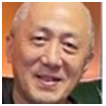
It is supposed to be a basic from grade school that n/0 does not exist, i.e. n/0 is NOT a number.
Similarly, n/0 = ∞ is not ok while lim n/x = ∞ or y when x → 0 is okay.
This is because ∞ is a notion of “greater than any number” and thus is NOT a number itself.
Accordingly, any arithmetic operations cannot be applied to ∞, which means:
n × ∞ = ∞ is not okay while lim n × u = ∞ when u → ∞ is okay
n + ∞ = ∞ is not okay while lim n + u = ∞ when u → ∞ is okay
n / ∞ = 0 is not okay while lim n / u = 0, m, or ∞ when u → ∞ is okay
∞ + ∞ = ∞ is not okay while lim n + u = ∞ when n → ∞ and u → ∞ is okay
∞ × ∞ = ∞ is not okay while lim n × u = ∞ when n → ∞ and u → ∞ is okay
∞ / ∞ = anything is not okay while lim n / u = 0, m, or ∞ when n → ∞ and u → ∞ is okay
Summary:
1) n/0 is not a number;
2) ∞ is not a number….it is a notion of “greater than any number”….this notion cannot be counted or calculated like a number.
Cheers, Ron
Like1
We can compare infinity with cardinal and intercardinal points. We could, for instance, move towards the northeast indefinitely, but we would never arrive at a place called the northeast. And, if we are naive enough to believe in the existence of such a place, we just need to imagine ourselves being there to realize that, even from there, we could keep moving towards the northeast. And, if we keep moving in that direction forever, we would be going in circles, getting closer and closer to the north pole, but never getting there or at the northeast point.
Like
David this is true, but is the definition of the finite only rational in light of the irrationality of the actual infinite? The concepts are interdependent. Thus both are real in that sence. The finite expressions depend conceptually on the transcendent for intelligibility.
We cannot navigate 3d visual reality without the vanishing point. So the vanishing point although absurd in one sence is necessary and real.
Actual infinity is an irrational real object and we as fininte can never arrive but are dependent on the aim.
Cantor agreed with this and conceptualised mathematical ways, sets to bound the actual into intelligibility and mathematical expression. The symbol for Pi is a visual set that contains the actual infinite real numbers. We are also forced by this reality to say the verbal word "Pi", within that verbal set contains the infinity of digits. Imagine if I had to verbally express the digits of Pi instead of saying "Pi". I would stand muttering digits until I died. This is absurd but true.
Cantors impulse was an exploration into what we do with language and symbols implicitly. And in my estimation proves the Actual as a necessary irrational yet real thing.
What do you think about that?
Like
T Clark.
I'm sorry. I think all that is nonsense. We don't need actual infinity to understand infinity (potential infinity, as named by Aristotle). It seems that you an I understand irrational numbers in a different way.
Like2
Ron, thanks for your comment.
"It is supposed to be a basic from grade school that n/0 does not exist, i.e. n/0 is NOT a number."
Yes, I learned that too, but I now believe it is OK to divide by zero, since that is the only way you can reach absolute infinity.
"Similarly, n/0 = ∞ is not ok while lim n/x = ∞ or y when x → 0 is okay."
Yes, I agree, but if x has an absolute value greater than zero, then n/x doesn't equal infinity--just a finite number that tends to infinity.
"This is because ∞ is a notion of “greater than any number” and thus is NOT a number itself."
Actually infinity is a number. Here is the definition:
"a number greater than any assignable quantity or countable number (symbol ∞)."--Google search.
"Accordingly, any arithmetic operations cannot be applied to ∞, which means:
n × ∞ = ∞ is not okay while lim n × u = ∞ when u → ∞ is okay
n + ∞ = ∞ is not okay while lim n + u = ∞ when u → ∞ is okay
n / ∞ = 0 is not okay while lim n / u = 0, m, or ∞ when u → ∞ is okay
∞ + ∞ = ∞ is not okay while lim n + u = ∞ when n → ∞ and u → ∞ is okay
∞ × ∞ = ∞ is not okay while lim n × u = ∞ when n → ∞ and u → ∞ is okay
∞ / ∞ = anything is not okay while lim n / u = 0, m, or ∞ when n → ∞ and u → ∞ is okay"
True, but that doesn't stop mathematicians from trying to do operations with infinity. See Ramanujan, Cantor, etc.
"Summary:
"1) n/0 is not a number;"
Technically it is a number, but the number is undefined.
"2) ∞ is not a number….it is a notion of “greater than any number”….this notion cannot be counted or calculated like a number."
Infinity is a number, but it is not finite, so it does not behave like finite numbers when operations are performed with it.
Like
Well, people can define any formal system they want.....for example, they might define ∞ + ∞ = ∞, ∞ × ∞ = ∞, ∞ - ∞ = something, n × ∞ = ∞, n + ∞ = ∞, etc.....However, by doing this they have created an ∞ that is in conflict with the basic notion of ∞ for "greater than any number".....they just created a game system for themselves......
Can they put that system in practical use?
Sometimes they can as long as it does not cause logical trouble.....just like anyone can have his own shorthand system but not necessarily everyone else could recognize all the contents he put on paper for fast recording (Chinese people might appreciate this more than English people because Chinese shorthand writing of some people could really go wild)......
Therefore, when people do use their own formal system for ∞ in real life they need to bear in mind that there are cracks between their system and the reality and their feet might be stuck in the cracks sometimes.....
For example.....tan(π/2) = 1/0 is often written as ∞, but the geometrical meaning of tan(π/2) is fundamentally different from the geometrical meaning of tan(π/2-ε) because within a right triangle, when an acute angle increase to π/2, the triangle would no longer exist.....so the tan(π/2) = ∞ is just a shorthand for taking note of the tangent of a nonexistent internal angle of the right triangle, or a shorthand for noting the limit of tan(π/2-ε) when ε goes to zero.
All the above content is much more philosophical than mathematical.....nonetheless it is not less real because it is more philosophical than mathematical.....contrarily, it just exposes the shortcoming in mathematical system and it tells that mathematics cannot completely be independent of philosophy!
Cheers,
Ron
Like![]() 2
2
GM Jackson,
In mathematics we do not use Google definitions. We define objects by their properties, and those properties can be accepted only if they do not create contradictions. You can believe in whatever you want but in mathematics we are either right, if our statements do not produced contradictions, or wrong, if they do. Mathematics need to be consistent and coherent. This is not about believes and dictionaries but about rigor and proofs.
Thanks for inviting me to this discussion.
Like
Ron, thanks for your last comment. You wrote:
"Can they put that system in practical use?"
The only practical use I can think of is the idea of infinite precision and real numbers. Infinite precision is a worthy goal but probably can never be achieved. Real numbers require that there be an infinite number of numbers between, say, 0 and 1. It's tough to have a concept of real numbers without evoking infinity. Infinity does not behave like finite numbers when operations are performed on it, but I don't consider that a contradiction. It would only be a contradiction if infinity and finite are defined the same way.
Like1
David Peralta: Could you please tell me what book cites 400 people who question Cantor's arguments? I would like to see this book. Thank you.
Like
GM Jackson,
When you say 【Real numbers require that there be an infinite number of numbers between, say, 0 and 1. It's tough to have a concept of real numbers without evoking infinity. 】, subconsciously I guess you were referring to ∞ as a notion of "bigger than any number" which is consistent with the ancient knowledge since thousands of years ago......
However, if you intend to apply ∞ + ∞ = ∞ to real numbers then you are no longer in the realm of the ancient notion of ∞, but rather getting into a counting scheme of numbers, where you will get into logical contradiction with basic commonsense or the knowledge that people have been knowing since Bernoulli and L'H?pital for centuries.....for example, you will conclude like Cantor did that the number of points on a side line of a square are the same as the number of points on the square itself, which is not only wrong but also absurd.
Cheers,
Ron
Like
David, you wrote ...
"In mathematics we do not use Google definitions."
After Googling the definition more than once I find there are two camps: those who define infinity as a number and those who don't. At this point in time I believe infinity is an absolute value greater than any number I can imagine. This belief is based on X = lim h --> 0 n/h, where h is taken all the way to the limit of zero. n/0 is an undefined number that must have an absolute value greater than any value imagined. It is undefined because no one can pin down that absolute value.
"We define objects by their properties, and those properties can be accepted only if they do not create contradictions."
But humans can be walking contradictions and are also considered objects.
" You can believe in whatever you want but in mathematics we are either right, if our statements do not produced contradictions, or wrong, if they do."
The word "contradiction" needs to be defined as well. If a statement is consistent with the nature of infinity, then there is no contradiction. For example, if I claim that infinity behaves like a finite number and then write infinity + 1 = infinity, that is a contradiction. But if I claim infinity does not behave like a finite number, then there is no contradiction.
"Mathematics need to be consistent and coherent."
But your math won't be if you don't keep your definitions straight and true. Your error is you assume the infinite and the finite should all be the same and behave the same way. That's the contradiction.
"This is not about believes and dictionaries but about rigor and proofs."
Rigor and proof have no value without dictionaries that contain the agreed upon terminology used in proofs. Further, you can't prove that infinity is or is not a number. It depends on how it is defined, and definitions are subjective agreements within communities, so members of a community can communicate effectively. There is no golden tablet I'm aware of that lays out definitions of words.
"Thanks for inviting me to this discussion."
Thanks for participating.
Like
One tricky issue concerning infinity is the so-called infinite number of points in space which is also corresponding to the infinitely many real numbers through Descartes mapping.
The notion of infinite number of points in space is constructed on the notion of point without volume which is a notion that has stumbled Zeno, Aristotle, and even Hegel and Russell (who happened to be also a professional mathematician) after Newton resolved the issues related to zero volume points and the infinitely many points with calculus that is constructed on top of the notion of infinitely approaching the limit.
Here the zero volume point is an abstract notion that is constructed by human imagination and causes logical contradiction........if a point has no volume, it should not occupy space, but if it does not occupy space, it should not accumulate no matter how many you pile them up along one direction.....
This is where philosophy comes to play in a realistic way: the purpose of using human imagination is not to ruin human reflection of nature but to aid human better perceive nature.
Obviously, the self-contradictory notion of zero volume point would cause logical blunder if you extend it into the counting scheme to make ∞ + ∞ = ∞ valid, therefore you should not do it even though there is no biological or psychological law to prevent you from doing so when you make the imagination.....
Happy Thanksgiving,
Like1
Ron, I don't disagree. But I wonder how many zeros it would take to make 5? How about 5/0 zeros? Where 0 * 5/0 = 5.
![]() Like
Like
Well, no matter how many zeros, they won't make 5.....That is the point.....Hegel stumbled when he tried to prove how nothing could become something.....he needs calculus....but calculus is a special math language that cannot be expressed using natural language without the notion of infinitely approaching......Hegel tried very hard, but I don't think he made it very clear with natural language......
Russell stumbled on the issue again when he tried to use set theory to express the instant moment of time......there he encountered what you are encountering here: set theory cannot be used to express calculus because itself lacks the notion of infinitely approaching.....
Numbers came from counting thousands years ago.....but number system does not contain the tool of Newton's calculus.......Now, people like you or others here who are professional mathematicians specialized in number theory might not like this philosophical insight.....
However, philosophically I have to say this: you have to accept the defect in human counting system!
Obviously, as a mathematician specialized in set theory, Russell did not realize this defect of human counting system,....then as a Nobel laureate for his contribution in philosophy he FAILED to know what the real cause was for his failure of expressing the instant moment issue with set theory....
Cheers,
Ron
【[1]】戴榕菁(2024)哲学无穷大与数学无穷大
【[2]】戴榕菁 (2017)黑格尔本体论的逻辑缺陷
【[3]】戴榕菁 (2015)关于罗素时间定义的补充讨论
[[4]]Dai, R. (2022). Solution to Hilbert First Problem against the Illusion of Cantorian Cardinal System. Retrieved from: https://wp.me/pkz9Y-8A
[[5]]Dai, R. (2024). Theorem of the Impossibility to Precisely Match Nonlinearity with Averages of Scattered Data. Retrieved from: https://murongqingcao.wordpress.com/2024/06/12/664/
【[6]】戴榕菁 (2022)一不小心破解连续性假说(CH)?
【[7]】戴榕菁 (2022) 此事非同小可。。。
【[8]】戴榕菁 (2022) 康托集合论之哲学误区
【[9]】戴榕菁 (2022) 那么为什么会有希尔伯特第一问题呢?
【[10]】戴榕菁 (2022) 这回他们真急了。。。
【[11]】戴榕菁 (2023) 康托碰不得?
【[12]】戴榕菁 (2024) 离散数据拟合非线性之不可能定理



